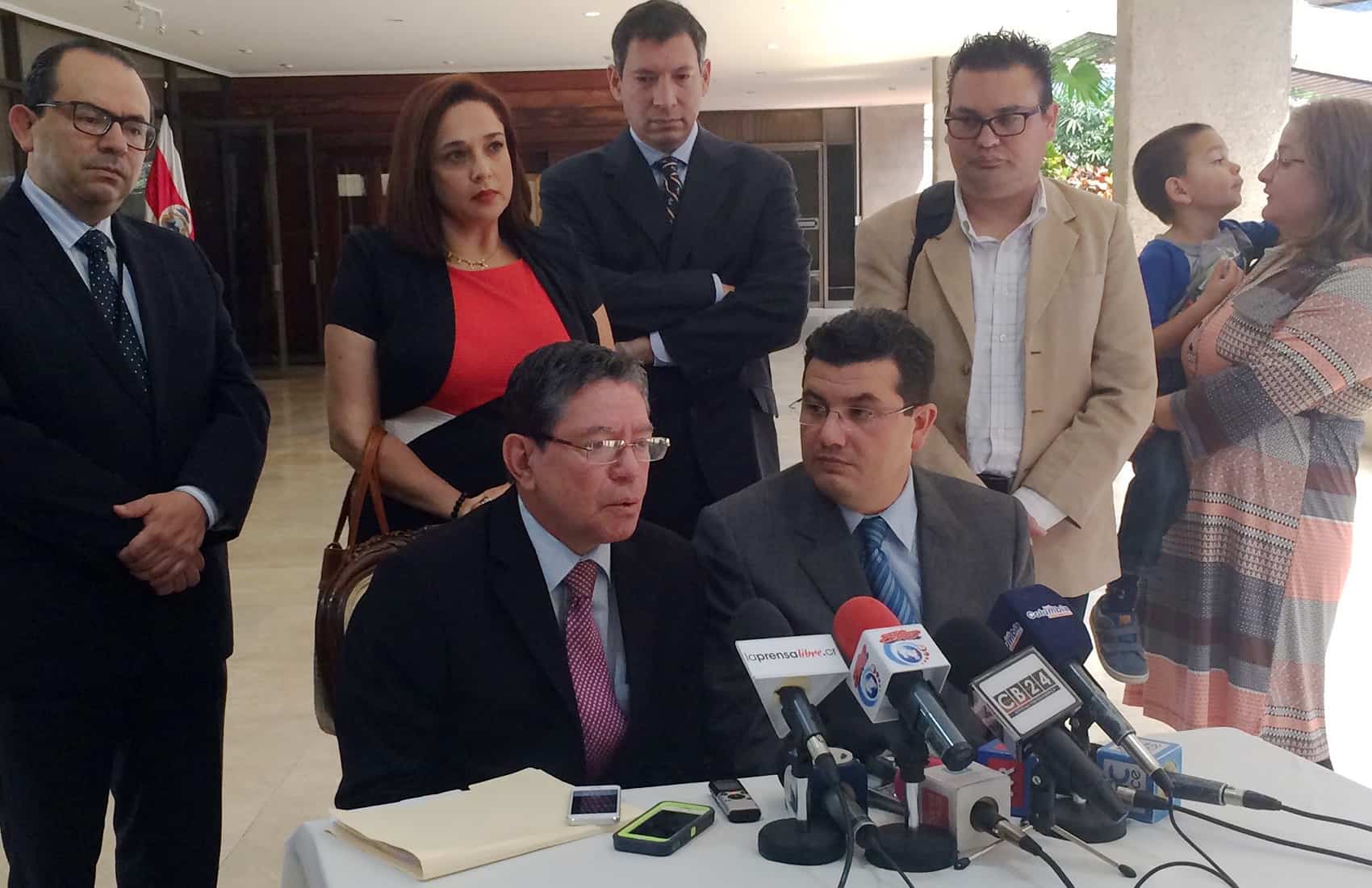The administration of Costa Rican President Luis Guillermo Solís says it will comply in the coming months with an international court order to reinstate women’s right to in vitro fertilization.
The commitment came Wednesday in response to the Costa Rican legislature’s failure to pass a bill regulating the fertility procedure. The Inter-American Court of Human Rights (IACHR) ordered the government to reinstate women’s right to undergo IVF in Costa Rica in 2012.
Representatives of the 27 couples who filed the initial complaint before the San José-based international court met with Solís on Wednesday and handed him a draft presidential decree for regulating IVF, which is currently banned.
Following the meeting, the Solís administration confirmed its intent to bypass the legislature and establish regulations for the fertility procedure, but Presidency Minister Sergio Alfaro Salas declined to give details or an exact timeline for complying with the Inter-American Court’s 2012 ruling.
Alfaro said the proposal would “be subject to legal evaluations before issuing a final decision.”
“I can’t say how long, but I don’t think it would be longer than six months,” Alfaro said. “That actually would be way too long. This administration understands that we are overdue for complying with an international ruling against the country and this government will work to correct this situation,” he said.
Marcela Leandro, one of the representatives of the 27 couples, said Solís reacted positively to their petition, saying he was open to evaluating the proposal. She said the meeting mostly addressed lifting the ban on IVF, which was imposed by Costa Rica’s Constitutional Chamber of the Supreme Court in 2000.
Costa Rica is the only country in the Western Hemisphere with a complete ban on in vitro fertilization.
“Overall, we are satisfied with today’s meeting,” Leandro said. “We made clear to the president that having children is a fundamental right and therefore the ban should be removed as soon as possible,” she said.
Leandro is the mother of a 5-year-old boy conceived by an IVF procedure in Panama, at a cost of $6,000.
The attorney for the couples, Huberth May Cantillano, said they decided to bring a draft executive decree to President Solís since a bill to regulate IVF has failed to pass in the Legislative Assembly since the previous administration.
May also said an analysis done by the Assembly’s technical staff had concluded that a new regulation outlining the procedure — not necessarily a law — would be sufficient for reinstating IVF.
Under the regulation proposed Wednesday by IVF advocates, the procedure would be available to couples who are able to provide their own gametes, couples with a gamete donor, and single women.
All would have to provide evidence of a physical condition preventing natural procreation.
The proposal would also regulate the transfer of embryos. Opponents of IVF say that the discarding of fertilized eggs during the procedure is akin to causing the death of living beings.
Further delays in reinstating IVF procedures could expose the country to sanctions from the Inter-American Court of Human Rights. Local administrative courts could also impose economic sanctions.
Gerardo Mejía Rojas, another representative of the 27 couples, said the number of couples suing the government in Costa Rican courts for denying IVF has grown to some 70. They’re asking for compensation of up to ₡150 million (some $278,000) each for the government’s refusal to reinstate the procedure, Mejía said.






